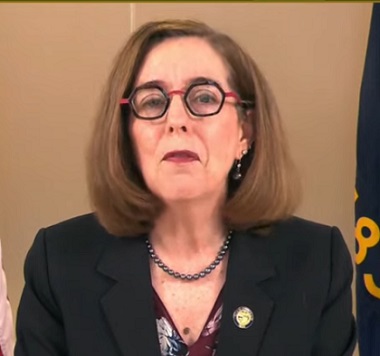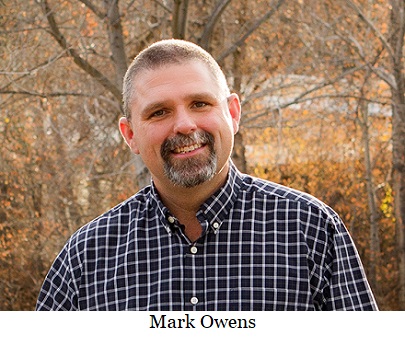
On this day, August 27, 2019, jet-car speed racer 30-year-old Jessi Combs, known by fans as the "fastest woman on four wheels," died in a crash in the Alvord Desert in Southeastern Oregon while trying to break a speed record.
 Post an Event
Post an Event
| Benton County Republicans’ Private Fundraising Event, “Bent-on Boots and Bling” with Trey Taylor |
| Friday, September 5, 2025 at 5:00 pm |
| Featuring Trey Taylor
Music Private Event
Friday, September 5, 2025 5:00-5:30 pm VIP Reception
5:30-8:00 pm Heavy Appetizers,
Auction, Concert
Red: $750 VIP Reception
Front Row Table Sponsor
White: $500 Table Sponsor
Blue: $50 per person
Limited Seating. Get Yours Now!!!
Support Local
Dress up: Bling, Cowboy, Patriotic Benton County Republican
FUNDRAISER
www.BentonGOP.org
Get your tickets today at:
https://www.bentongop.org/event-details/benton-county-republicans-fundraiser/form
About Trey:
Trey is the youngest African American Man in Country Music History. The Denver Post wrote
"It's impossible to miss his enthusiasm. With a fondness for cowboy boots, gaudy colors and dazzling jewelry, Trey Taylor could stand toe to toe with any of the Pop, Country or even Rap
contemporaries of his generation.“ |
| Trysting Tree Golf Club, 34028 NE Electric Rd., Corvallis |
OHA mandates made permanent
Oregon Health Authority (OHA) marches forward with four permanent
rules on mandates for masking and vaccinations.
After an
overwhelming number of Oregonians voiced opposition, OHA still filed
the first rule with the Secretary of State’s office.
This first rule makes permanent what was a temporary rule for masking
indoors at K-12 schools and that school staff be fully vaccinated.
The
second rule, expected to be filed this week makes permanent
requirements that health care workers wear masks and, in most health
care settings, be fully vaccinated.
The temporary rules could not be renewed as temporary, giving an
excuse to make them permanent.
Why would OHA pursue permanent
rule after the Supreme Court blocked Biden’s vaccine mandates for
large employers causing Biden administration to withdraw its Covid
vaccination and testing requirements?
Does OHA not think our teachers
and health care workers deserve the same liberties as corporation
employees? The New York State Supreme Court said it’s an
unconstitutional overstep to mandate wearing masks.
Is OHA playing a
bluff that no one will challenge their authority?
The Covid vaccinations are still under an emergency use authorization
and have never been approved. As more and more questionable
information is released over the safety of vaccines, more people are
questioning that information. England announced they will no longer
require masks nor vaccine certifications and are scheduled to drop
booster requirements. Some speculate that this is to get the voter base back. If true, why isn’t Governor Brown concerned about her party’s
voter base? Are Oregon voters too brainwashed to connect the dots?
One parent, Katrina Cole, speaking out against discriminatory practice
between the vaccinated and unvaccinated, says, “they are requiring
teachers who do not get the booster shot to quarantine for 10 days,
while the boosted teachers only need to quarantine for 5 days. I cannot find any scientific data or studies that support this. The same is true for
unvaccinated students.â€
A D V E R T I S E M E N T

A D V E R T I S E M E N T
The 'test to stay' policy was removed that was scheduled to start in
January. It allowed unvaccinated students who were exposed to a
confirmed or speculative case, to 'test out' of quarantine while
vaccinated students do not have to test if they are not showing
symptoms. However, the policy was cancelled with the current
outbreak and the current policy automatically quarantines
unvaccinated students who are contact trace to positive cases in the
classroom, even if they are not showing any symptoms and test
negative.
Cole says, “some of my lowest students have lost many
unnecessary days of instruction due to this policy, and I have
documentation from the district on all of this information.â€
It does seem the Oregon is testing the waters on all fronts. Are we
ready to join the truckers in Canada and say enough?
--Donna Bleiler| Post Date: 2022-01-30 13:56:06 | Last Update: 2022-01-30 15:48:02 |
The federal government extended the open enrollment period
The
Oregon Health Insurance Marketplace has announced that during the 2022 open enrollment period, 146,602 Oregonians enrolled in health insurance coverage, representing about 3.4% of all Oregonians.
The federal government extended the open enrollment period for 2022 health coverage from 45 to 76 days (Nov. 1, 2021, to Jan. 15, 2022). This extra window of time enabled more Oregonians to enroll in health coverage than either of the past two years (141,089 people in 2021 and 145,264 people in 2020).
In addition, the American Rescue Plan Act (2021) has made health insurance purchased through the Marketplace more affordable than ever. Individuals and families will pay less for health insurance thanks to financial help available through
OregonHealthCare.gov.
“I am elated to see more Oregonians taking advantage of the tremendous savings available on health coverage through the Oregon Health Insurance Marketplace,†says Chiqui Flowers, administrator of the Oregon Health Insurance Marketplace. “Health coverage is essential to helping Oregonians seek the care they need to stay healthy. We are encouraged to see the benefits the American Rescue Plan Act and extended open enrollment period will have on the ability for people to seek the care they need.â€
A D V E R T I S E M E N T

A D V E R T I S E M E N T
People who missed the open enrollment deadline may still have an opportunity to get health coverage through the Marketplace if they experienced a qualifying life event such as moving, involuntarily losing health coverage, having or adopting a child, marriage, a change in citizenship, and being released from incarceration. Enrolled tribal members and Alaska natives can enroll in health coverage at any time throughout the year.
The Oregon Health Insurance Marketplace, a part of state government, helps people get health insurance when they do not have job-based coverage, and do not qualify for the Oregon Health Plan or another program. The Marketplace is the state-level partner to
HealthCare.gov.
--Staff Reports| Post Date: 2022-01-30 13:09:07 | Last Update: 2022-01-30 14:01:53 |
What authorization was used to make the change?
The State of Oregon’s independent advocate to help injured workers
navigate the workers’ compensation system is changing its name from
Ombudsman for Injured Workers to the Ombuds Office for Oregon
Workers.
The 1987 Legislature created the
Office of the Ombudsman
for Injured Workers as an independent advocate for injured workers
under
ORS 656.709.
That statute authorizes the Director of the
Department of Consumer and Business Services to terminate the
ombudsman, but there is no authorization to change the focus adding
workplace safety and health for all workers, nor does it authorize a
name change without legislation.
The statute directs the ombudsman to “act as an advocate for injured
workers by accepting, investigating, and attempting to resolve
complaints concerning matters related to workers’ compensation".
The work proved valuable and the Legislature increased the staff in 1990.
Legislation passed in 2003 clarified the supervision and control of
ombudsman services and required that quarterly reports be submitted
to the governor.
The office consists of the ombudsman and five staff
members. Since 2003, the office has helped from 7,500 to 9,000 injured workers per
year.
A D V E R T I S E M E N T

A D V E R T I S E M E N T
It is now the Ombuds Office for Oregon Workers. It has expanded its
role to help Oregon workers with workplace safety and health issues,
and help workers protect their rights under Oregon OSHA’s laws and
rules. Are these the same rules the Governor called for with COVID and
vaccine mandates?
“We are continuing to serve injured workers in the workers’
compensation system,†said Ombuds for Oregon Workers Jennifer
Flood. “We are just expanding to include all Oregon workers.†Since they were working at capacity, will this be another agency in the news for failure to serve and looking to the legislature to bail them out with more staff?
What Oregonians should be asking is what authorization was used to
make a change against the laws they operate under.
--Donna Bleiler| Post Date: 2022-01-30 11:07:33 | Last Update: 2022-01-30 11:26:48 |
$135,000 fine reversed
Aaron and Melissa Klein were forced to close their Sweet Cakes bakery
in 2016 after the Bureau of Labor and Industries (BOLI) determined
they violated Oregon’s 2007 law prohibiting discrimination based on
sexual orientation by refusing to make a wedding cake.
The couple was
fined $60,000 in noneconomic damages to Laurel Bowman-Cryer and
$75,000 to Rachel Bowman-Cryer.
That assessment when against the
national trend when other states were assessing fines of $5,000-
$15,000.
The Kleins lost in the court of appeals and appealed to the Oregon
Supreme Court only to be declined. They then appealed to the U.S.
Supreme Court with hopes that a recent ruling in a similar case would
benefit them. The Supreme Court ruled that the Colorado Commission
on Civil Rights did not employ “religious neutrality†and reversed that
state’s decision against the bakery owner. Even though it had
applications, the Supreme Court sent the Klein case back to the Oregon
Court of Appeals for reconsideration.
The court of appeals was charged with applying the Supreme Court
ruling to the Klein case.
Justice Lagesen wrote in the case
Klein v BOLI,
“We reverse and remand the order’s damages award … BOLI’s handling
of the damages portion of the case does not reflect the neutrality
toward religion required by the free-exercise (of religion) clause. We
therefore set aside the damages portion of the order and remand for
further proceedings related to remedy.â€
Even though the Court of Appeal reversed the $135,000 fine, they stuck
to the charge of discrimination based on sexual orientation.
Judge
Lagesen wrote, “Neither the state constitution nor the federal
constitution precludes the enforcement of the statute against Aaron
(Klein), even though the enforcement of the statute burdens Aaron’s
practice of his faith. In so doing, we conclude that (the 2021 federal
decision) does not displace our previous conclusion that it is a
genuinely applicable and neutral law.†In so doing they do not provide
for the First Amendment as the authority over state laws.
A D V E R T I S E M E N T

A D V E R T I S E M E N T
Counsel Stephanie Taub said, “Oregon is trying to have its cake and eat
it, too.†The court admitted that BOLI acted with hostility against the
Kleins’ religious beliefs.
It will become apparent in how BOLI handles
the penalties against the Kleins for living out their faith. Whatever BOLI
imposes, the Kleins intend to appeal to the Oregon and U.S. Supreme
Court on behalf of millions of faith-based small business owners.
--Donna Bleiler| Post Date: 2022-01-29 07:26:20 | Last Update: 2022-01-28 21:44:43 |
Why isn’t fresh thinking finding its way into public transit?
If you could choose only one, would you choose the right to keep and bear arms or the right to mobility? You do need a car more often than a gun. The Second Amendment that protects the Right to Bear Arms is under assault every day by groups seeking to limit the use of guns. The arguments and methods of attacking gun owners rights are an accumulation of the latest crises de jour. Opponents of the Second Amendment don’t appear to support any of the Bill of Rights or even the Constitution itself. It is all lumped into one category of contempt for America and its founding principles.
We hear that the F.B.I. estimates 2.5 million crimes are not committed each year because people are armed. The vast majority of these attempts at crime go unreported hence the word ‘estimate’ used by the F.B.I. Ignoring those statistics and focusing on emotional stories of whoa citizens are constantly encouraged to give up their freedom for perceived security in many ways. The arguments calling for limits to gun ownership are just a fraction of the attacks on freedom.
Another attack on freedom is one that seeks to limit the mobility of citizens. Unlike the attacks on gun ownership this threat is administered in a Fabian method. That means the change comes so slowly the victim doesn’t realize they have been trapped until it is to late to resist. Fabians argue that giving up free mobility is a tradeoff for other benefits. The problem is those benefits are phantom in which operatives sample false arguments. Those that find acceptance in focus groups get test cases. Those that attract sympathetic audiences are repeated, for generations if necessary, to break down resistance.
A D V E R T I S E M E N T

A D V E R T I S E M E N T
80% of Americans live in urban locations. Public Mass transit is essential in only the most densely populated urban centers. Dependency on mass transit is the goal of those who are the equivalent of the gun control advocates seeking to limit the Second Amendment. Promotion of mass transit has required huge subsidies. Over time, most citizens unconsciously accept the necessity of subsidies. The reasoning is that we must care for those unable to move about without public transportation. How many times do you see mass transit sparsely occupied? How many times do you see high utilization? Could the goal of accommodating the less fortunate be served more efficiently?
We saw Uber and Lyft revolutionize cars for hire. Why isn’t fresh thinking finding its way into public transit? Could it be that Fabian methods don’t allow fresh thinking? Those less well-off receive food stamps. In Oregon that amounts to 21% of the population. What if they got transportation vouchers for Uber and Lyft and mass transit was displaced? Has anyone run the numbers on such an idea? How would that change the OVERALL cost of transportation that is paid for by taxpayers?

Literally hundreds of billions of taxpayer dollars has been consumed in building an electric car industry and infrastructure. Only 1% of Americans have purchased electric vehicles even though their cost is taxpayer subsidized $7500. To accelerated electric car sales we have seen America abandon its energy independence and in just one year gasoline costs rose 40%. If you can’t subsidize Americans into electric cars maybe you can punish them sufficiently at the pump to bring that change about. Ratepayers have been forced to pay for wind and solar farms and now they are paying to build car charging stations.
The thing about electricity that is different from petroleum is who controls the source. America’s gas and oil industry is still privately owned and privately directed. America’s electric utilities are privately owned but are state regulated monopolies. Government can deny electricity to those it finds out of favor. When a citizen threw a maskless backyard party in L.A. last year Governor Newsome had his electricity cut off. Newsome was just protecting the public from party goers spreading COVID. What a convenient excuse for asserting unchecked power. Good thing that homeowner had a vehicle that ran on petroleum.
--Tom Hammer| Post Date: 2022-01-29 06:27:34 | Last Update: 2022-01-28 21:09:07 |
Angela Plowhead is running for Oregon’s new district
Voters in the Newberg School District decided on January 18 to oppose the attempted recall of two of its board members.
Board Chair Dave Brown and Vice Chair Brian Shannon were targeted for recall by special interest groups that have grown used to getting their way far too often. Some of them even organized phone banks and neighborhood canvasses to try and sway the vote. Hollywood elites also became involved and chipped in financially to help fund the effort.
The voters recognized that outsiders with undue influence were involving themselves in a local matter primarily affecting parents and students and rejected the recall. Brown and Shannon will continue to serve in the positions that these same voters elected to put them in.
"In the weeks before the recall election, I publicly stated my support for those board members. I went to Newberg several times to physically stand alongside those who campaigned against the recall and was the only top Congressional District 6 candidate to do so," Said Dr. Angela Plowhead.
"This election is a good example of how school board races are being politicized in Oregon and nationally," Plowhead explained. "What we’ve seen in Oregon, for years, is the strong political power of the teachers union over state politics. It routinely donates millions of dollars every election cycle to candidates pledging to raise taxes to maintain the status quo of academic failure. The recipients of those donations include at least two Democratic lawmakers who have announced their candidacies for Congressional District 6, who have been more than happy to carry out the union’s wishes throughout their legislative careers."
Nationally, parents are growing increasingly concerned about what their children are being taught in these taxpayer-funded public schools. This has caused many of them to get involved and pay attention to what’s going on at their local school board meetings. Some, like Brown and Shannon, have run for school board positions, gotten elected and worked to bring accountability back to the classroom.
But the same teachers unions are now funding candidates in local school board elections, much as they’ve done so successfully at the state level in Oregon for decades. Although this is undoubtedly a conflict of interest, it is still allowed.
The same people and groups who tried to recall Brown and Shannon were hoping to make examples of them. They wanted to show that if you’re a school board member who doesn’t do what the teachers union wants, you will be forced out of office.
A D V E R T I S E M E N T

A D V E R T I S E M E N T
"Education is always a top issue for candidates and voters every election," Dr. Plowhead continued. "But when some candidates talk about it, what they mean is that they will raise taxes to increase funding for a system that we all know is broken. That’s why I’m taking a different approach with this race. Academic excellence is critical. But what’s becoming increasingly obvious is that funding isn’t the issue—it’s the lack of accountability for the actual results, or lack thereof."
"I’m running on a platform of educational accountability, in which the voices of parents, students and community members are not drowned out or silenced by special interest groups," declared Dr. Plowhead. "What took place in Newberg was indeed a victory, but it’s just the beginning. As a candidate and as your next member of Congress, I will continue to stand with parents and school board members who most certainly should have a say in what students are being taught in schools. We must have true accountability in our education system."
--Staff Reports| Post Date: 2022-01-28 12:09:38 | Last Update: 2022-01-31 14:02:28 |
Oregon’s problem of illegal cannabis
The December Special Session passed
Senate Bill 893 and
Senate Bill
5561 to provide relief for the humanitarian crisis facing migrant
workers caught up in illegal cannabis operations.
It will create financial
assistance to local law enforcement agencies and community-based
organizations to work with a statewide plan to address the problem of
illegal cannabis.
Senator Jeff Golden (D-Ashland), who co-carried the bill on the Senate
floor with Senator Tim Knopp (R-Bend), said, “Illegal cannabis
operations in Southern Oregon have been using our limited water
supply, abusing local workers, threatening neighbors and negatively
impacting businesses run by legal marijuana growers. This is urgent
funding we need right now to protect our agriculture industry, a pillar
of Oregon’s economy and the Rogue Valley’s quality of life.â€
The hope for the bills is that illicit growers would leave the state facing
increased enforcement. Although some are reporting a decrease in
activity, residences are saying it’s only a pause for the winter.
Last year,
the biggest bust was 1000 plants. A recent bust reaped 200,000 plants.
The illegal operations are linked to national and international criminal
organization.
These growers are coordinated from out of state and run
by a mid-level person, mostly connected to Mexico. It isn’t just the
Mexican cartels, there is growing evidence of direct ties to Russia,
Albania, Guatemala, Costa Rica, France, China and the Mid-East.
The crime ring doesn’t take the winter off from illegally growing. They
shift to other illegal activities. Jackson County Commissioner Rick Dyer
told the Register-Guard that “the illegal marijuana situation in Jackson, as well as in neighboring Josephine County, has produced a number of
negative impacts for the region.
A D V E R T I S E M E N T

A D V E R T I S E M E N T
Some of the issues include human
trafficking, narco slavery and forced labor amid deplorable living
conditions. Drug traffickers intimidate and abuse workers, some of
whom are parents to young children, or are minors themselves.â€
This week
Eugene police ended a high speed chase by puncturing the
tires of their stolen vehicle to rescued a 10-year-old girl abducted from
her bike.
Eugene and Portland police worked together to rescue six girls
in a Portland hotel room, including four from Eugene. Oregon state
police are looking for a man that tried to abduct a 13-year-old girl.
Eugene police forced another vehicle through a fence and rescued a 17-
year-old girl from a 40-year-old that is reported to have been arrested
over 40 times. Another 17-year-old girl was rescued last week in Coos
Bay in similar circumstances.
Jackson County exposed a commercial
prostitution and human trafficking parlor. These are just a tip of what is
impacting communities.
Oregon voters legalized recreational drugs under a false pretense that
the industry would force cartels out-of-state.
But, the state’s policy
welcoming illegals giving them free health care and other benefits may
have encouraged these illegal activities and exasperated the
enforcement of illegal growers and traffickers.
--Donna Bleiler| Post Date: 2022-01-28 08:03:35 | Last Update: 2022-01-28 08:26:43 |
Get ready for more government spending
The proposed schedule for the Oregon Legislative Session is to begin
February 1.
It begins what is called a Short session and has a 35 day
limit.
It was passed by voters to deal with issues from the Regular
session that could or best not wait until the next Regular session, such
as budget fixes and technical issues. Voters are now questioning what
this session will look like after two special sessions called last year
seemed unnecessary.
There are 256 bills introduced of which health
issues are the most popular, and that wasn’t on the Governor’s list of
priorities.
The timeline proposed is to have a scheduled work session in the
chamber of origin no later than February 7 and to have bills out of that
chamber by February 14.
The second chamber must schedule a work
session by February 18 and consider those bills by February 24.
However, that is not the end-all. This timeline does not apply to the
Joint Committee on Ways and Means, other joint committees except
for the Joint Committee on Transportation, Senate Committee on
Finance and Revenue, House Committee on Revenue, Senate
Committee on Rules, House Committee on Rules, Senate Committee on
Conduct and House Committee on Conduct. That involves more than
one-fifth of the bills, and it only takes one to destroy our liberties.
A D V E R T I S E M E N T

A D V E R T I S E M E N T
For instance, Election bills are exempt from the timeline.
HB 4133, a bill sponsored by Democrat Representative Julie Fahey (D-Eugene) and Senator Akasha Lawrence Spence (D-Portland),
allows a person with a Social Security number to register to vote with
their signature, and it allows an approved third-party organization to
submit registration cards electronically on behalf of individuals. No
proof of residency, it’s an alternative to an Oregon driver license or permit, or a state identification card. Oregon’s biggest issue in
fraudulent voting is ineligible voters.
This will legalize ineligible voters
where, over time, Oregonians will have no say.
Governor Brown wants the legislature to deal with affordable housing,
education, public safety, advancing the Private Forest Accord, allocating
$100 million package in investments for child care services, a $200
million package to bolster the state’s workforce and $38 million to invest in
small businesses, and increase funding to regional economic
development organizations.
Those are some major issues to resolve in
35 days when some have been on the table for years.
--Donna Bleiler| Post Date: 2022-01-28 06:47:56 | Last Update: 2022-01-28 08:08:12 |
Will be the first openly Black LGBTQ+ man to serve in the Oregon Legislature
Multnomah County commissioners have appointed Travis Nelson as Representative-designate for House District 44, replacing former House Speaker Tina Kotek, the longest-serving Speaker in Oregon history, stepped down officially last week to focus on her run for Governor.
Nelson will be the first openly Black LGBTQ+ man to serve in the Oregon Legislature. He will be sworn in on Tuesday, February 1 at 7:30 a.m. and will serve during the upcoming session. “I look forward to bringing my perspective as a Black LGBTQ+ man and healthcare worker to the Legislature,†said Representative-designate Nelson. “As a legislator, I will advocate for and approach policy through an equity lens to help

bring opportunity to all. We must break down the systemic barriers in place that for too long have kept folks who look like me from these positions of power and influence.†Representative Dan Rayfield (D-Corvallis), a heterosexual, white, male has been elected as the new Speaker of the Oregon House.
Nelson currently works as a board certified nurse and is a member of the Oregon Nurses Association and founding member of the Alliance of Black Nurses of Oregon.
“Our Caucus is thrilled to welcome Representative-designate Nelson to the Legislature,†said Senator Kayse Jama (D-Portland), Co-Chair of the Oregon Legislature’s Black, Indigenous, People of Color (BIPOC) Caucus. “His experience as a champion for equity will serve our communities well as we work toward closing racial disparities in health care and protecting the rights of workers.â€
A D V E R T I S E M E N T

A D V E R T I S E M E N T
Having worked as a union representative and officer of the Democratic Party of Oregon, Nelson is passionate about tackling a range of issues, including climate change mitigation, housing and houselessness, healthcare access, and racial equity.
“We are proud to welcome Representative-designate Nelson to the Legislature,†said House Majority Leader Julie Fahey (D-West Eugene/Junction City). “One of our strengths as a Caucus is our diversity, and the experiences he brings will be critical to our shared commitment to an equitable recovery that reaches every corner of the state.â€
The grandson of sharecroppers, Nelson was born to teenage parents in a small rural town in North Louisiana. Before entering grade school, his parents moved him and his sister from Louisiana to the Pacific Northwest in search of a better life and opportunity.
In 2005 Nelson moved to the Portland area and started his nursing career.
--Staff Reports| Post Date: 2022-01-27 17:22:32 | Last Update: 2022-01-27 18:07:26 |
Reintroduces legislation to bring normalcy back into the lives of Oregonians
State Representative E. Werner Reschke (R-Klamath Falls) announced two bills he will reintroduce for the 2022 Legislative Session, which begins on Tuesday, February 1.
HJR 201 is a resolution, that upon passage, would immediately terminate the Governor’s state of emergency declaration that first began March 2020. The resolution does not require the Governor’s signature to take effect, giving the Legislature a more appropriate balance of power that is currently concentrated in the Governor’s Office.
Rep. Reschke’s second bill is
HB 4069. This bill would make discrimination based on one’s medical history illegal by a government entity or private business.
“These two, common sense proposals will bring normalcy back to our lives and help unite Oregonians,†said Rep. Reschke. “People are frustrated by one-person, top-down, arbitrary ruling that has often been at odds with neighboring states and official health recommendations. We need to treat each other with dignity and respect, ending the practice of looking at one another with suspicion and contempt based on whatever one person says is or is not allowed. It is now 2022, not March 2020. It is time to move on and live our lives as free Oregonians and shed the fear from the past. Almost every other state in the country has done so. So should Oregon.â€
--Staff Reports| Post Date: 2022-01-27 17:12:01 | Last Update: 2022-01-27 18:07:46 |
Deadline for filing is Tuesday, March 8
Beaverton, Oregon residents interested in running for election to the Beaverton City Council can now obtain a Candidate’s Filing Handbook.
Four City Council positions elected at-large are open. The deadline in filing is Tuesday, Mar. 8 at 5 p.m.
Councilor Positions 1, 2 and 5 will be nominated at the Primary Election and elected at the General Election to serve a four-year term.
At the Primary Election, the two candidates with the most votes for each position will proceed to the General Election ballot. If one candidate receives a majority of all votes cast, then that candidate alone is nominated to the General Election Ballot. The candidate with the majority of votes at the General Election is elected.
Councilor Position 3 is a vacant position due to resignation with three years remaining on the unexpired term for this office.
Candidates must be 18 years of age by the election date, a qualified elector of the state, and have lived in city limits six months prior to the election date.
A D V E R T I S E M E N T

A D V E R T I S E M E N T
The Candidate's Filing Handbook with requirements for petition and signatures can be obtained from the City Elections Office at Beaverton City Hall (12725 SW Millikan Way) or
online.
The Primary Election is May 17, 2022 and the General Election is Nov. 8, 2022.
--Bruce Armstrong| Post Date: 2022-01-27 14:47:02 | Last Update: 2022-01-27 15:01:07 |
Proposal comes from Oregon Republicans
Oregon State Representative Mark Owens (R-Crane) is introducing a bill during the
2022 Legislative Session that will restore the balance of power in Oregon’s government.
“This is really about transparency and a balance of power,†said Representative Owens.
“Oregonians are growing tired of Governor Brown’s never-ending emergency and a rule-
making process that they don’t understand. We need to introduce sensible limits to the
power of the Governor’s office in our state.â€
HJR 206, introduced by Representative Owens with bicameral support, would refer to
the voters the option to vote to amend the Oregon Constitution to limit the Governor’s
ability to declare an emergency or exercise powers under the declaration of emergency
to only those granted by the law and for 30 days. This resolution would bring better
balance to Oregon’s government which currently concentrates a large amount of
authority in a single office.
The ongoing COVID-19 pandemic has resulted in strict government mandates and
regulations, dictating how people can live their lives, all directed by the Governor’s
Office through the Oregon Health Authority. Oregonians have become discontent with
rules like a permanent indoor mask mandate and want more transparency in the
decision-making process.
A D V E R T I S E M E N T

A D V E R T I S E M E N T
“It’s time for accountability and fairness in how these decisions are made. One sole
person should not have ultimate and unchecked authority when it comes to determining
the rights and freedoms of Oregonians.â€
--Bruce Armstrong| Post Date: 2022-01-27 14:23:48 | Last Update: 2022-01-27 14:34:44 |
Read More Articles
















 Literally hundreds of billions of taxpayer dollars has been consumed in building an electric car industry and infrastructure. Only 1% of Americans have purchased electric vehicles even though their cost is taxpayer subsidized $7500. To accelerated electric car sales we have seen America abandon its energy independence and in just one year gasoline costs rose 40%. If you can’t subsidize Americans into electric cars maybe you can punish them sufficiently at the pump to bring that change about. Ratepayers have been forced to pay for wind and solar farms and now they are paying to build car charging stations.
Literally hundreds of billions of taxpayer dollars has been consumed in building an electric car industry and infrastructure. Only 1% of Americans have purchased electric vehicles even though their cost is taxpayer subsidized $7500. To accelerated electric car sales we have seen America abandon its energy independence and in just one year gasoline costs rose 40%. If you can’t subsidize Americans into electric cars maybe you can punish them sufficiently at the pump to bring that change about. Ratepayers have been forced to pay for wind and solar farms and now they are paying to build car charging stations.







 bring opportunity to all. We must break down the systemic barriers in place that for too long have kept folks who look like me from these positions of power and influence.†Representative Dan Rayfield (D-Corvallis), a heterosexual, white, male has been elected as the new Speaker of the Oregon House.
bring opportunity to all. We must break down the systemic barriers in place that for too long have kept folks who look like me from these positions of power and influence.†Representative Dan Rayfield (D-Corvallis), a heterosexual, white, male has been elected as the new Speaker of the Oregon House.





